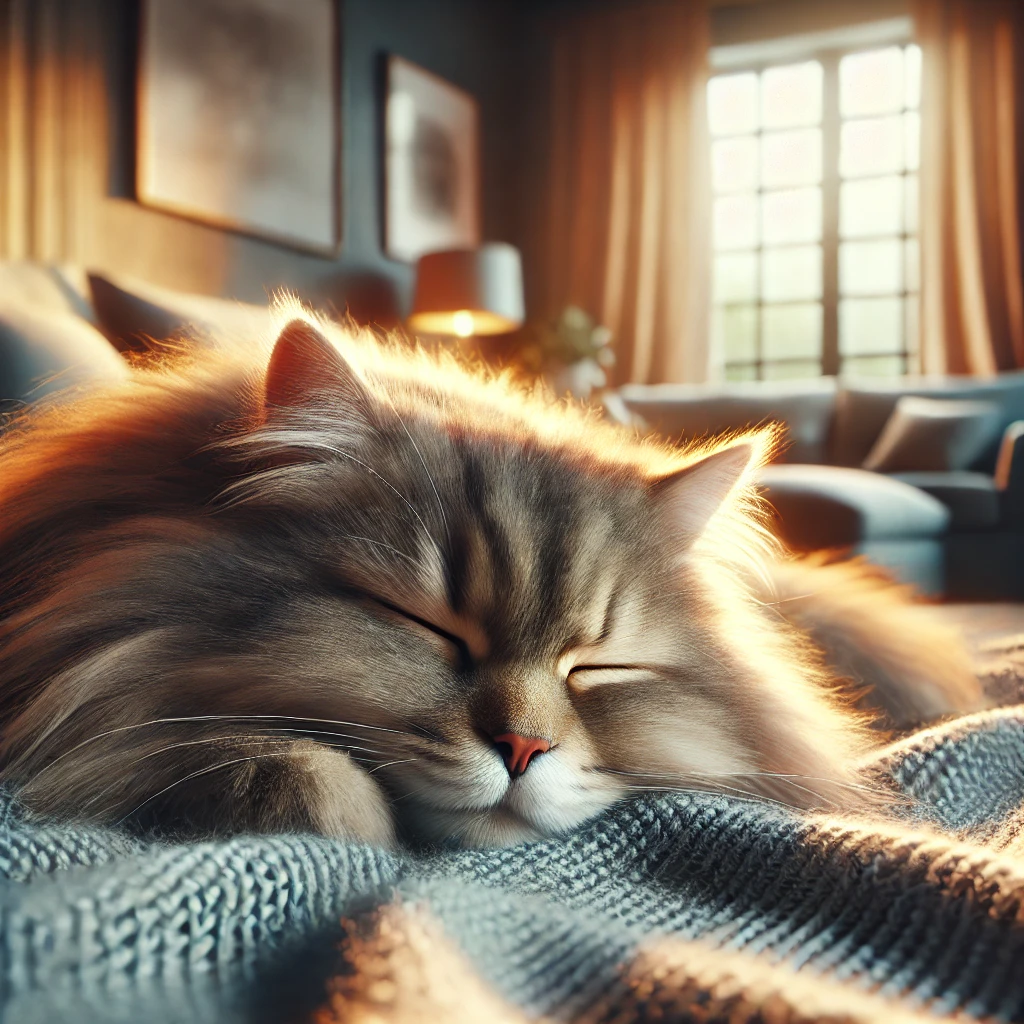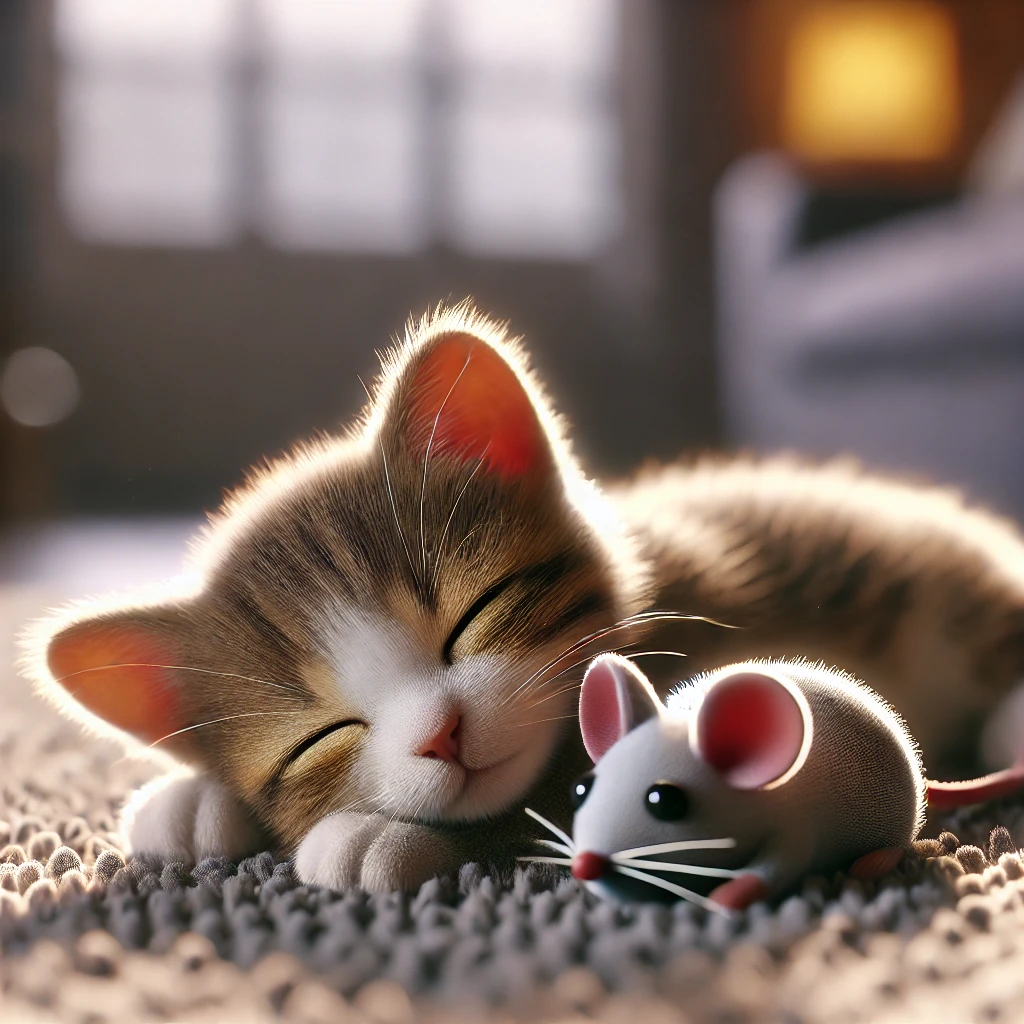Do Cats Spent 75 of Their Life Sleeping? Find Out Why They Sleep That Way
Anyone who has ever owned a cat will be familiar with the one true fact about cats: Cats love to sleep. It always seems as if they are sleeping for the bulk of the day, whether it’s lying down in perfect sun or curled up inside a nook. But just how much of their life do cats sleep? do cats spent 75 of their life? This is something people commonly believe, but is it actually true? In this article, we’ll take a deep dive into your kitty’s sleep habits, discover why they sleep so much, and debunk some popular myths surrounding kitty cats’ snoozing.
How Many Hours Do Cats Actually Sleep?
As cat parents, you might be asking yourself, “How much sleep is too much sleep for my cat?” or “Do cats actually spend most of their life sleeping?” Let us take a look at the sleep cycle of cats, so you can understand how much time they actually spend snoozing and what influences such behavior.
A Typical Cat’s Sleep Cycle
Cats are crepuscular creatures, which means they’re active during the twilight hours of dawn and dusk. This behavior is related to their hunting instincts in the wild. They save their energy through the day and at night, when their prey animals are not as active, they unleash their energy during these prime hunting times.
A healthy adult cat usually sleeps between 12 and 16 hours each day, which is about two-thirds of its life. But you have to remember that the 75% number you often hear applies to certain scenarios, such as kittens and older cats.
How Much Sleep You Need Varies by Age
Various life stages have different sleep needs, and this is one of the factors that contributes to how much time a cat spends resting.
Kittens:
Kittens are at a fast stage of growth and development, so they sleep a lot — up to 20 hours a day. This sleep helps their bodies and brains grow and develop properly, so it’s completely natural.
Adult Cats:
Most adult cats will sleep 12 to 16 hours a day. Cats may also sleep more on the days when they are less active, and some breeds (the lazy Persian, for example) are naturally more prone to loafing around.
Senior Cats:
Older cats are generally less active and will sleep more than a younger cat. Older cats can sleep as much as 20 hours per day. As cats age, their energy levels tire out a lot more, so they need additional rest (the same goes for sick cats).
For a cat, which lives 15 years and sleeps 16 hours a day on average, this would mean ending up with 67% of their life spent sleeping, not the 75% claim. Kittens and elderly cats, however, might be at least 75% asleep because they have unique sleeping requirements.

Why Do Cats Sleep So Much?
So, you may be wondering: Why do cats sleep so much? Is it that they are just lazy or something else? Here are some of the primary reasons why cats sleep so much.
Predatory Instincts
Cats are still instinctively predators even in domestic settings. As natural predators, cats naturally sleep in bursts to conserve energy for hunting. In the wild, cats sleep by day and hunt at twilight and dawn when prey are most active. Alternatively, although your cat isn’t hunting for their next meal, they haven’t lost their instinct for the process, which is why they still sleep to prepare for bursts of energy.
Energy Conservation
Cats don’t engage in continuous physical activity as humans do. They do not need to run, travel long distances, or perform high-activity tasks. That is to say, they take naps to save energy for mini romps of excitement, such as chasing a toy mouse, running after a laser beam or pouncing on a bug. In this way, they’re making sure they’re well rested and prepared for action when the time comes.
The Importance of Sleep for Your Mental Health
Sleeping is not merely for recharging their energy; it carries a significant role in physical health. Dreaming in REM (Rapid Eye Movement) sleep helps cats to repair the tissue, fortify the immune system, and detoxify the body. This is especially crucial for kittens, who require additional sleep for physical growth and cognitive development.
In older cats, sleep helps them cope with age-related health problems, including arthritis, kidney disease or heart disease. Older cats require longer rests in order to relieve pain and allow their bodies to recover from the wear and tear of physical activity.
Stress and Anxiety Reduction
Like humans, cats need sleep to minimize stress and protect their mental health. With inadequate rest, cats may become stressed or anxious. That can result in behavioral problems, like being irritable or aggressive or over-grooming. And by helping them find a peaceful place to rest, you’re creating a harmonious retreat that allows them to relax and be emotionally grounded.

Kittens and Senior Cats Need More Sleep
From kittens to senior cats, each stage has its own unique sleep needs. Let’s break down why each of these stages of life is especially important for sleep.
Kittens: Growth and Development and Required Sleep
Kittens sleep about 18-20 hours a day, which is of great importance for their growth. Their bodies are growing, their immune systems are strengthening, their brains are making neural connections. Restful sleep during these early stages is essential for kittens’ physical and cognitive development and allows them to file away information, hone their motor skills and enhance memory.
Though it may look like they’re just “resting” for those long naps, kittens are hard at work behind the scenes — growing their muscles, bones and organs. That’s the reason they require so much time to recuperate in order to sustain their rapid development process.
Older Cats: More Sleep Because of Aging
A cat’s energy levels go down and their need for sleep increases as they get older. Senior cats, defined here as 10 and older, may sleep up to 20 hours a day. So the need for additional sleep is mostly due to diminished physical abilities and health problems associated with aging. Arthritis, kidney disease, dental problems and other health issues can be uncomfortable, so sleep becomes a kind of healing and pain management with the ability to heal and alleviate.
Older cats can also be affected by changes in their sleep-wake cycle, often becoming more nocturnal or showing patterns of frequent wakefulness, especially at night. Senior cats probably need a more peaceful area to rest, sleep and age, undisturbed.
Common Myths About Cat Sleep
Though cats are widely recognizable, there are many misconceptions about cats and the ways in which they sleep. Let’s debunk a few of those myths:
Debunking the Myths of Cat Sleep
Myth 1: Cats Sleep Too Much, and They Are Lazy
It may seem that way, but in fact, cats need to sleep to recharge their energy levels between play, stalking, and exploration. Their sleep is also important for overall health and recovery.
Myth 2: When They Are Bored, Cats Sleep
A catnap in this category? That could not be more untrue. While boredom may increase a cat’s urge to nap, their napping mechanism is actually supposed to maintain their body in optimal condition for action when it is needed.
Myth 3: Cats Sleep Less When They Have Enough Food
While balanced, nutritious diets are important for overall health, the food vs. sleep ratio is not real. The preferred amount of rest for a cat depends on its age, general health, and body’s necessity. We all know cats are prone to long-duration sleep times. Hence, suppose you are cat-keeping, you can expect the patter of feet all over your furniture nearly all day long.

How to Encourage Healthy Sleep for Your Cat
To help ensure that your cat gets the right amount of rest, here are some practical tips you can implement:
Curb Segregation
Arrange a quiet, secure, and relaxed sleeping area for your cat. Isolation is key. Cats flourish in secret places, so make their bed in a secret part or place perch and play with your cat at home.
Engage in Interactive Play
Playtime is crucial for maintaining your cat’s exercise and mental agility. Use toys such as feather wands, balls, or laser pointers to promote physical activity. Playtime several times a day will ensure your cat is tired and has burned enough energy to be active and happy when awake, so they are able to sleep well at night.
Monitor Your Cat’s Health
If you’re concerned that your cat is sleeping too much or exhibiting any other qualities of lethargy, you should contact a vet. Changes in appetite, excessive sleep or sudden behavior changes can be indicators of underlying health concerns.
FAQ About Cats and Sleep
Q1: Do cats sleep 75% of their life?
The 75 percent figure is a miscalculation when it comes to cats in general. While most adult cats only sleep 12-16 hours per day, kittens and seniors can sleep more, making up 75% of their time awake.
Q2. Why do cats sleep so much?
Cats sleep for recharging energy, enhancing their predatory impulses, and improving their physical and mental recovery. Sleep’s critical to keeping them healthy and well.
Q3: Is it okay for my cat to sleep more than 16 hours?
We’ve seen older kittens and older cats do this quite often and those with health conditions. If your adult cat has suddenly started sleeping a great deal more than usual, it may be worth checking a vet, just in case of health issues.
Q4: If my cat is sleeping too much, can I exercise him when he’s sleeping?
Your cat should be allowed to sleep undisturbed. Unless they are feeding, healthy and in a safe environment, there is no reason to wake them up. Sleep is vital for their health, and rousing them early can cause stress.
Q5: How can I tell if a cat is getting enough sleep?
A rested cat is lively and alert when awake. But if your cat is fatigued even when awake or exhibits other illness symptoms, like not eating or drinking, you should reach out for veterinary advice.
Conclusion
Therefore, do cats sleep 75 of their life? While this does not hold true for every cat, it approximates the reality of kittens and old ones, who sleep longer than adult felines. But sleep is important for all cats, allowing them to expend less energy, recharge after physical effort and stay healthy. Whether they take 12-hour or even 20-hour long naps, it is part of their natural rhythm.
Knowing your cat’s sleeping habits and facilitating a healthy and stimulating environment can help your feline friends lead a happy and healthy life.
